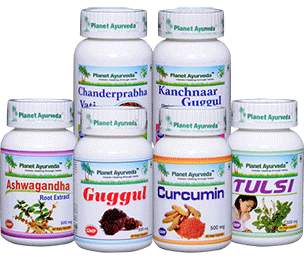Overview
Myelodysplastic Syndrome (MDS) is a rare disorder of the stem cells in the bone marrow and as a result, the quality of healthy blood-forming cells decline, further impairing normal blood production. Patients with this disease develop severe anemia, infections and easy bleeding. In some cases, due to progressive bone marrow failure, the patients develop ‘cytopenia’ and in about one third of patients with myelodysplastic syndrome, the disease gets transformed into acute myelogenous leukemia. People at the age of 60 and above, have the risk of this disease mainly due to environmental exposure to radiation and benzene. MDS may be hereditary or caused by another disease or illness, but there is no known cause.
Symptoms of Myelodysplastic Syndrome are found during a routine blood test and include shortness of breath, weakness, feeling tired, pale skin, profused bleeding, pinpoint spots under the skin, fever, frequent infections etc. Some patients have features of autoimmune inflammation (like arthralgia) and also, hepatomegaly is reported in about 5-10% of the patients.
Doctors recommend treatment for Myelodysplastic Syndrome as ‘allogeneic blood and marrow transplantation’ (BMT), but due to the older age of the patients and the intensity of the treatment, this treatment is often not recommended for MDS patients. Allogeneic BMT achieves some success through a combination of high-dose chemotherapy. If allogeneic BMT is not appropriate for a patient, treatment is geared toward relieving symptoms and includes supportive care, epigenetic therapy and biologic therapy. Researchers are consistently testing new treatments for myelodysplastic syndrome, their effectiveness and also clinical trials are conducted to continuously advance the standard of cure and treatment for myelodysplastic syndrome. It has been observed that in most cases, the course of this disease is chronic and can gradually worsen as the bone marrow begins to fail. Most MDS treatments are designed to slow down the progression of myelodysplastic syndrome and to help alleviate symptoms of the disease.
Ayurvedic system of medicine has shown good results in the cure of myelodysplastic syndrome and the aim is to control symptoms, improve quality of life, improve overall survival and decrease progression of the disease. The treatment comprises of administration of effective natural and herbal remedies; since bone marrow transplant, chemotherapy and steroids is the temporary form of treatment for myelodysplastic syndrome. Our ‘Crab Care Pack’ is aimed at treating the basic pathology of the disease, controlling the symptoms, reducing the side effects of modern therapy and improving survival. The effective herbal supplements(present in our pack) for the treatment of myelodysplastic syndrome are infact the basis of ancient ayurveda system of medicine and aimed with the purpose of maximizing human potential and defying sickness.
Crab Care Pack
Dosage
- Ashwagandha Capsules: 2 capsules to be taken two times in a day with plain water after meals.
- Guggul capsules: 2 capsules to be taken two times in a day with plain water after meals.
- Curcumin Capsules: 2 capsules to be taken two times in a day with plain water after meals.
- Tulsi Capsules: 2 capsules to be taken two times in a day with plain water after meals.
- Chanderprabha Vati: 2 tablets to be taken three times in a day with plain water after meals.
- Kanchnaar Guggul: 2 tablets to be taken three times in a day with plain water after meals.
This pack contains herbal remedies for cancer which work in a synergistic manner to help fight the body with the cancer. The cancer can be of any type but these supplements work together to perform optimum function at cellular level and help stop the spread of cancer to various organs.
1. All these supplements can be consumed even if the cancer has already spread and it is a malignant cancer.
2. All these herbal remedies for cancer can be consumed even if the person is undergoing chemotherapy or radiotherapy. These herbs for cancer would rather help to reduce the side effects of chemotherapy or radiotherapy.
All these can be consumed together without any problem in the above mentioned dosages, about 1 hour after meals.
It is better if the patient consumes natural food and juices of carrots, beetroot, wheat grass, aloe vera juice, amla juice.
It is better if the patient does not take frozen, packaged, citric acid fruits, fried food. Also avoid alcohol and reduce non-veg diet.
It is also better if the patient consumes raw green vegetables, fresh salads and fruits and nuts.
Why to Use Our Products?
The difference between our products and others:-
- We are using 100 % vegetarian capsules made from plant cellulose and not from hard gelatin which are low in cost and are made from chemicals+ cow cartilage+ pig intestines.
- We are using standardized extracts in our 100 % natural herbal supplements and not regular extracts.
- We are filling 500 mg standardized herbal extracts in our vegetarian capsule shells while many other manufacturers are filling 250 mg herbal extracts or raw herb powder.
- The cost of raw herb powder is minimum, the cost of herbal extract is 10 times more and the cost of standardized extract is further more.
- So many people fill 250 mg herbal extracts and the rest of the 500 mg capsule shell is filled with raw herb powder or fillers / chemicals / flour etc. just to cut costs. We fill only 500 mg standardized extracts without any preservatives or fillers or chemicals.
- Our products are 100 % natural supplements, made from pure natural herbal extracts in 500 mg quantity in each capsule.
- This was about capsule based formulations. We have herbal supplements made from pure herbs, herbal tablets made from 100 % natural organic herbs.

